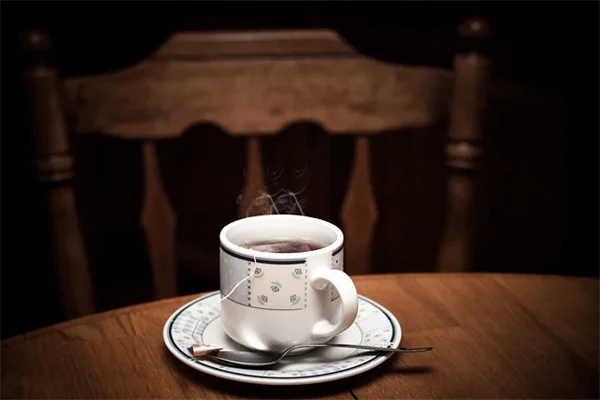Advertisement
Can losing your sense of smell predict Alzheimer's disease? The answer is: Yes, recent research shows that smell loss could be an early warning sign - especially if you carry the APOE e4 gene variant. Scientists found that people with this genetic marker start struggling to detect odors between ages 65-69, often a decade before memory issues appear. But here's the good news: knowing this connection gives you power. We'll show you how certain lifestyle changes and early detection methods might help protect your brain health. Whether you're noticing changes in your sense of smell or just want to stay ahead of cognitive decline, understanding this link could be your first step toward prevention.
E.g. :8,200 Daily Steps Can Lower Chronic Disease Risk - New Study Reveals
- 1、Your Nose Knows: The Surprising Link Between Smell and Alzheimer's
- 2、Is Alzheimer's Inevitable If You Can't Smell Well?
- 3、What About Medications and Other Options?
- 4、Your Questions Answered
- 5、Making Sense of the Science
- 6、Taking Control of Your Brain Health
- 7、The Hidden Superpower of Your Nose
- 8、Smell Training - Your Brain's New Best Friend
- 9、The Surprising World of Professional Smellers
- 10、Your Nose Knows: Fun Experiments to Try
- 11、When Should You Really Worry About Smell Loss?
- 12、FAQs
Your Nose Knows: The Surprising Link Between Smell and Alzheimer's
Why Your Sniffer Might Be Trying to Tell You Something
Ever walked into a bakery and couldn't smell the fresh cookies? That might be more serious than you think. New research shows that trouble detecting odors could be an early warning sign for Alzheimer's disease - especially if you have the APOE e4 gene variant.
Here's the scoop: scientists studied 865 people over several years, testing both their ability to detect smells and identify what they were smelling. The results were eye-opening. People with the APOE e4 gene started struggling to notice smells between ages 65-69 - a full decade before memory problems typically appear!
The Science Behind the Sniff Test
Why does this happen? Your smell nerves are like the canaries in the coal mine of your brain. They're especially sensitive to damage from beta-amyloid proteins - those sticky troublemakers that form plaques in Alzheimer's patients.
Check out how the timeline breaks down:
| Age Group | Smell Detection Issues | Smell Identification Issues |
|---|---|---|
| 65-69 | Begins | Not yet |
| 75-79 | Worsens | Begins |
Is Alzheimer's Inevitable If You Can't Smell Well?
Not at all! While the APOE e4 gene increases risk, it's not a life sentence. Your daily choices make a huge difference. Think of it like this: genes load the gun, but lifestyle pulls the trigger.
 Photos provided by pixabay
Photos provided by pixabay
Your Brain's Best Friends
Want to keep your brain sharp? Try these research-backed tips:
Move it or lose it: Just 150 minutes of aerobic exercise weekly (that's like three Zumba classes!) can significantly lower your risk. Bonus points if you make your workouts social - double the brain benefits!
Eat the rainbow: Those colorful fruits and veggies aren't just pretty. They're packed with antioxidants that help protect your brain cells. Pro tip: try adding blueberries to your morning oatmeal - your future self will thank you.
What About Medications and Other Options?
Current Treatments Showing Promise
While there's no cure yet, medications like aducanumab (Aduhelm) and lecanemab (Leqembi) can help slow progression. But here's the thing - they work best when started early. That's why catching warning signs like smell loss matters so much!
Did you know your doctor can do a simple "scratch-and-sniff" test during your annual checkup? It's quick, painless, and could give you valuable information about your brain health.
Brain-Boosting Habits You Can Start Today
Let's get practical! Small changes add up:
- Swap soda for sparkling water with lemon
- Take the stairs instead of the elevator
- Try learning a new language (Duolingo counts!)
- Get 7-8 hours of quality sleep
Your Questions Answered
 Photos provided by pixabay
Photos provided by pixabay
Your Brain's Best Friends
Not necessarily! Many things can affect smell temporarily - colds, allergies, even strong cleaning products. The key is persistent changes you notice over time. When in doubt, check it out with your doctor.
Can You Really Prevent Alzheimer's?
While nothing guarantees 100% protection, you can stack the odds in your favor. Think of it like wearing a seatbelt - it doesn't prevent all accidents, but it sure improves your chances of walking away unharmed.
Making Sense of the Science
Why Smell Matters More Than You Think
Your nose does more than help you enjoy fresh-baked cookies. The olfactory system has direct connections to memory centers in your brain. That's why certain smells can instantly transport you back to childhood!
When these pathways start breaking down, it's like the early warning lights on your car's dashboard. Paying attention could give you precious time to take action.
 Photos provided by pixabay
Photos provided by pixabay
Your Brain's Best Friends
Having the APOE e4 variant doesn't doom you to Alzheimer's - about 25% of people carry one copy, and many never develop the disease. It's about understanding your personal risk profile so you can make informed choices.
Taking Control of Your Brain Health
Simple Tests You Can Do at Home
Try this: ask a family member to help you with a "spice jar test." See if you can identify common spices by smell alone. Can't tell cinnamon from cumin? Might be worth mentioning at your next doctor's visit.
Remember: knowledge is power. The earlier you spot potential issues, the more options you'll have. And who knows? That spice test might just inspire you to cook something delicious too!
Building Your Brain Health Team
You don't have to figure this out alone. Consider:
- Primary care doctor for regular checkups
- Nutritionist for meal planning tips
- Personal trainer for exercise guidance
- Neurologist if concerns arise
The bottom line? Your nose might be trying to tell you something important. Listen to it, take action, and keep enjoying all the wonderful smells life has to offer!
The Hidden Superpower of Your Nose
More Than Just a Smell Detector
Did you know your nose can detect over one trillion different scents? That's right - your schnoz is way more powerful than you probably give it credit for. While we're talking about Alzheimer's warning signs, let's not forget how amazing this organ really is!
Here's a fun fact that'll blow your mind: your sense of smell is the only one of your five senses that connects directly to your brain's memory and emotion centers. That's why the smell of grandma's apple pie can instantly transport you back to childhood holidays. Pretty cool, huh?
The Unexpected Connection Between Smell and Emotions
Ever wonder why certain smells make you feel happy or sad? There's actual science behind this! Your olfactory bulb (fancy term for smell center) has direct pathways to your amygdala and hippocampus - the parts of your brain that handle emotions and memories.
This explains why:
- Freshly cut grass might remind you of summer vacations
- Certain perfumes can bring back memories of loved ones
- The smell of hospitals might make you feel anxious
Smell Training - Your Brain's New Best Friend
Can You Actually Improve Your Sense of Smell?
Absolutely! Just like you can build muscle at the gym, you can strengthen your sense of smell through something called olfactory training. It's simple: every morning, take a few seconds to really smell four different scents - like coffee, lemon, mint, and cinnamon.
Studies show people who do this for just 12 weeks can improve their smell detection by up to 30%. Not bad for a few minutes of sniffing each day!
Why This Matters Beyond Alzheimer's
Better smell detection isn't just about catching diseases early. It can:
- Make food taste better (most flavor comes from smell!)
- Help you notice dangerous situations like gas leaks or smoke
- Enhance your enjoyment of nature and everyday experiences
The Surprising World of Professional Smellers
Jobs You Never Knew Existed
Ever heard of a "nose" in the perfume industry? These highly trained professionals can identify and recreate thousands of scents. Some make six figures just for their sniffers!
Other cool smell-related careers:
| Job Title | What They Do | Average Salary |
|---|---|---|
| Fragrance Chemist | Create new scents for products | $75,000 |
| Wine Sommelier | Identify wine characteristics by smell | $60,000+ tips |
| Food Flavorist | Develop flavors for processed foods | $90,000 |
How COVID Changed the Smell Game
Remember when everyone was losing their sense of smell during the pandemic? That actually led to some fascinating discoveries. Researchers found that people who did smell training recovered faster than those who didn't. Now many doctors recommend it as standard treatment!
Your Nose Knows: Fun Experiments to Try
The Blind Taste Test Challenge
Here's a fun party trick: have a friend blindfold you and pinch your nose shut. Then try to identify different foods - you'll be shocked at how little you can taste without smell! Apples and onions might suddenly taste identical.
Why does this happen? Because about 80% of what we call "taste" actually comes from smell. Your tongue only detects five basic flavors (sweet, salty, sour, bitter, umami), while your nose does all the heavy lifting.
Creating Your Personal Scent Memory Bank
Want to boost your memory through smells? Try this: pick a new scent (like lavender oil) while studying something important. Then smell it again right before a test or presentation. Your brain will make stronger connections!
This works because scent memories last longer than other types. That's why you might remember the perfume your first crush wore decades later, but forget what you had for lunch yesterday.
When Should You Really Worry About Smell Loss?
Other Conditions That Affect Your Sniffer
While Alzheimer's is important, it's not the only reason you might lose your sense of smell. Other possibilities include:
- Nasal polyps (non-cancerous growths)
- Chronic sinus infections
- Parkinson's disease
- Head injuries
- Certain medications
The key is noticing sudden changes or progressive worsening over time. Temporary loss from a cold is normal - months without smelling your morning coffee? That's worth checking out.
The Power of Early Detection
Here's something hopeful: catching smell issues early gives you more time to take action. Whether it's starting medications, changing lifestyle habits, or just monitoring closely, knowledge gives you power.
Think of it like checking your car's oil light. Ignoring it could lead to engine trouble down the road, but addressing it early keeps everything running smoothly for years to come.
E.g. :Loss of smell linked to Alzheimer's cognitive impairment and ...
FAQs
Q: How early can smell loss predict Alzheimer's risk?
A: The study found that people with the APOE e4 gene variant begin showing detectable smell issues between ages 65-69 - that's about 10 years before memory problems typically surface. What's fascinating is that trouble identifying specific smells (like cinnamon or coffee) comes later, around 75-79 years old. This timeline suggests your nose might give you an early heads-up about potential cognitive decline. If you're in this age range and notice persistent changes in your sense of smell, it's worth mentioning to your doctor - not to panic, but to stay proactive about your brain health.
Q: Should I get tested for the APOE e4 gene?
A: That's a personal decision we recommend discussing with your doctor. While about 25% of people carry one copy of this gene variant, having it doesn't mean you'll definitely develop Alzheimer's. The test can provide information, but it's not a crystal ball. More importantly, whether you have the gene or not, the same healthy lifestyle choices (like regular exercise and good nutrition) benefit everyone's brain health. Some people find genetic testing motivating for making positive changes, while others prefer not to know - there's no right answer for everyone.
Q: What simple smell tests can I do at home?
A: Try this easy "spice jar test" we mentioned in the article: have a family member hand you common spice jars (like cinnamon, coffee, or lemon zest) with your eyes closed. See if you can identify them by smell alone. Another option is paying attention to whether you notice strong everyday smells like brewing coffee, gasoline, or flowers. Key point: temporary smell loss from colds or allergies is normal, but if changes persist for weeks without explanation, that's when to consult your doctor. These simple checks take minutes but could provide valuable insights about your neurological health.
Q: Can improving my sense of smell prevent Alzheimer's?
A: While there's no direct evidence that smell training prevents Alzheimer's, keeping your olfactory system active certainly can't hurt! Some small studies suggest that regularly "exercising" your nose (by consciously smelling different scents daily) might help maintain smell function. More importantly, the lifestyle factors that support good smell health - like staying physically active, eating antioxidant-rich foods, and avoiding smoking - are the same ones that reduce Alzheimer's risk. Think of smell loss as an early warning sign that prompts you to adopt brain-healthy habits sooner rather than later.
Q: What medications are available if I'm at high risk?
A: Currently, two FDA-approved medications - aducanumab (Aduhelm) and lecanemab (Leqembi) - may help slow Alzheimer's progression in early stages. However, these treatments work best when started early, which is why identifying risk factors like smell loss matters. Your doctor might also recommend managing other conditions that increase risk, like high blood pressure or diabetes. Remember, medication is just one piece of the puzzle - combining treatment with lifestyle changes typically gives you the best shot at maintaining cognitive health long-term.







